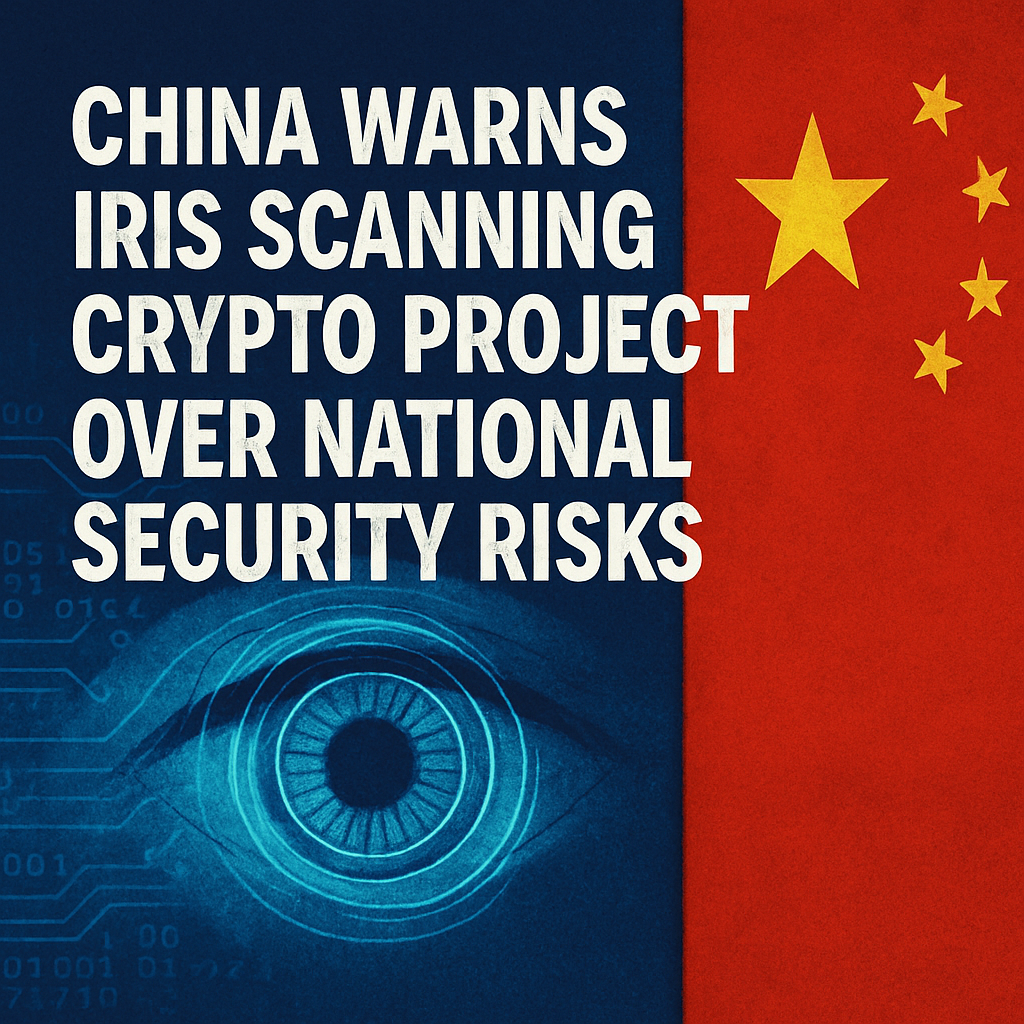A recent advisory from China’s Ministry of State Security (MSS) highlighted significant national security concerns regarding foreign companies collecting biometric data by incentivizing iris scans with cryptocurrency. The warning, published on the MSS’s official WeChat account, appears to reference the Worldcoin project co-founded by OpenAI CEO Sam Altman, which offers token rewards in exchange for users’ iris scans as part of an effort to build a global identity network.
The MSS advisory raised alarms about the potential transfer of sensitive biometric data to overseas locations without adequate safeguards. The notice detailed past incidents involving the unauthorized export of facial recognition data and warned that such practices could facilitate foreign intelligence operations, including deepfake identity fraud to penetrate secure facilities. While the advisory did not specifically name Worldcoin, its description of token-for-iris-scan schemes aligns closely with Worldcoin’s unique Orb hardware offerings.
Worldcoin has faced regulatory scrutiny and enforcement actions in jurisdictions including Germany, France, and Kenya over consent procedures, data storage protocols, and potential privacy violations. Critics have argued that incentivizing participation with cryptocurrency undermines informed consent and privacy protections, especially in regions with limited data-protection frameworks. The MSS statement suggested that incentives offered in cryptocurrency create additional challenges for tracing data flows and holding firms accountable under international data-protection norms.
Industry experts note that biometric identifiers such as iris patterns are immutable and uniquely personal, making any unauthorized data transfer particularly sensitive. Unlike passwords or tokens, biometric data cannot be reset, heightening privacy and security risks if databases are breached or misused. The MSS advisory urged Chinese citizens to exercise caution when engaging with digital identity schemes linked to foreign crypto platforms and to report suspicious data-collection activities to local security authorities.
The Worldcoin team has not publicly responded to the MSS warning, though past statements emphasized compliance with local laws and the adoption of zero-knowledge proofs to protect user privacy. The project’s white paper asserts that iris data is converted into encrypted hashes before being transmitted and that raw biometric images are never stored. Nevertheless, the recent advisory underscores ongoing tensions between innovative identity solutions and state security priorities.
As global regulators continue to evaluate the intersection of cryptocurrency, digital identity, and biometric privacy, the MSS warning may prompt further inquiries into cross-border data flows and compliance frameworks. Stakeholders in the digital identity space will be watching closely for subsequent policy developments in China and other major markets, where regulators balance technological advancement against national security imperatives.
.
Comments (0)